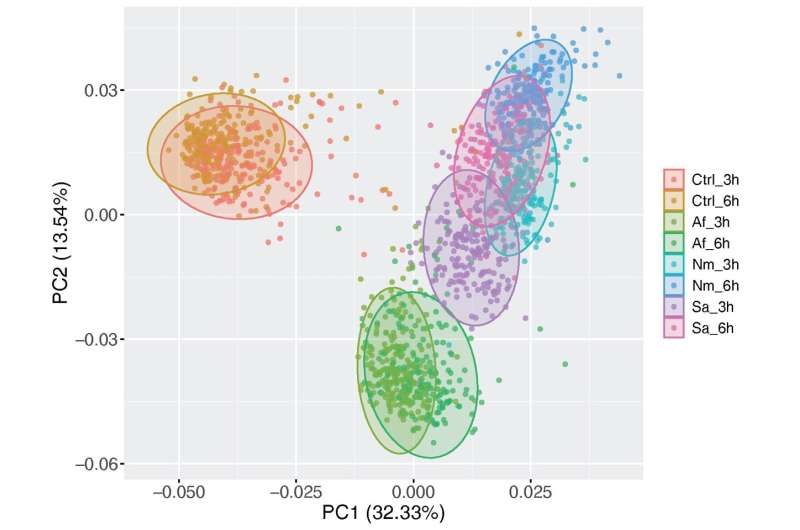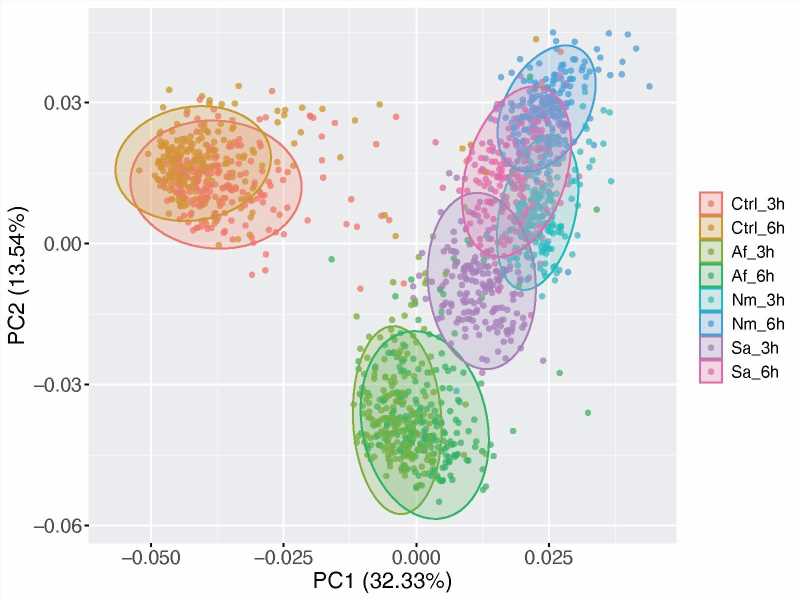
Not everyone reacts to infectious agents in the same way: some fall ill very severely, others only slightly, and still others possibly not at all.
There are many different reasons for this variability. One important reason is that the genome of different people differs from one another. For example, single molecules can be exchanged in the genome—in this case, experts speak of single nucleotide polymorphisms (SNPs).
How do such small genetic differences between people influence the activation of the immune system? Scientists from Jena, Marburg and Würzburg (Germany) have analyzed this in a new study published in the journal Nature Communications.
SNPs that influence the cell response upon activation by bacteria or fungi are called reQTLs (response expression quantitative trait loci, reQTLs). In one particular type of immune cells, the monocytes, the research team identified at least 745 reQTLs in 215 individuals that influence the activation of these cells upon contact with bacteria or fungi.
The influence is complex and varies depending on the pathogen. Some reQTLs are more likely to influence the response to bacterial pathogens, while others are more likely to influence the response to Aspergillus fumigatus. Among the activated genes that are regulated by reQTLs are especially genes that control central immunological cell functions. The reQTLs found in the study were also linked to other diseases, such as cancer, autoimmunity, inflammatory and infectious diseases.
“Our study makes an important contribution to better understand how a patient’s genetic background influences their response to infectious agents,” says Professor Oliver Kurzai. “We need to learn a lot more about this in order to move toward personalized medicine in the treatment of infectious diseases, as has been already established in cancer therapy—in other words, treatment that is individually tailored to each and every patient.”
But the new data also show how complicated clinical translation will be. “For each pathogen, there seem to be different genetic markers that regulate the human immune response—so there is still a lot to do,” say the researchers.
More information:
Antje Häder et al, Pathogen-specific innate immune response patterns are distinctly affected by genetic diversity, Nature Communications (2023). DOI: 10.1038/s41467-023-38994-5
Journal information:
Nature Communications
Source: Read Full Article






